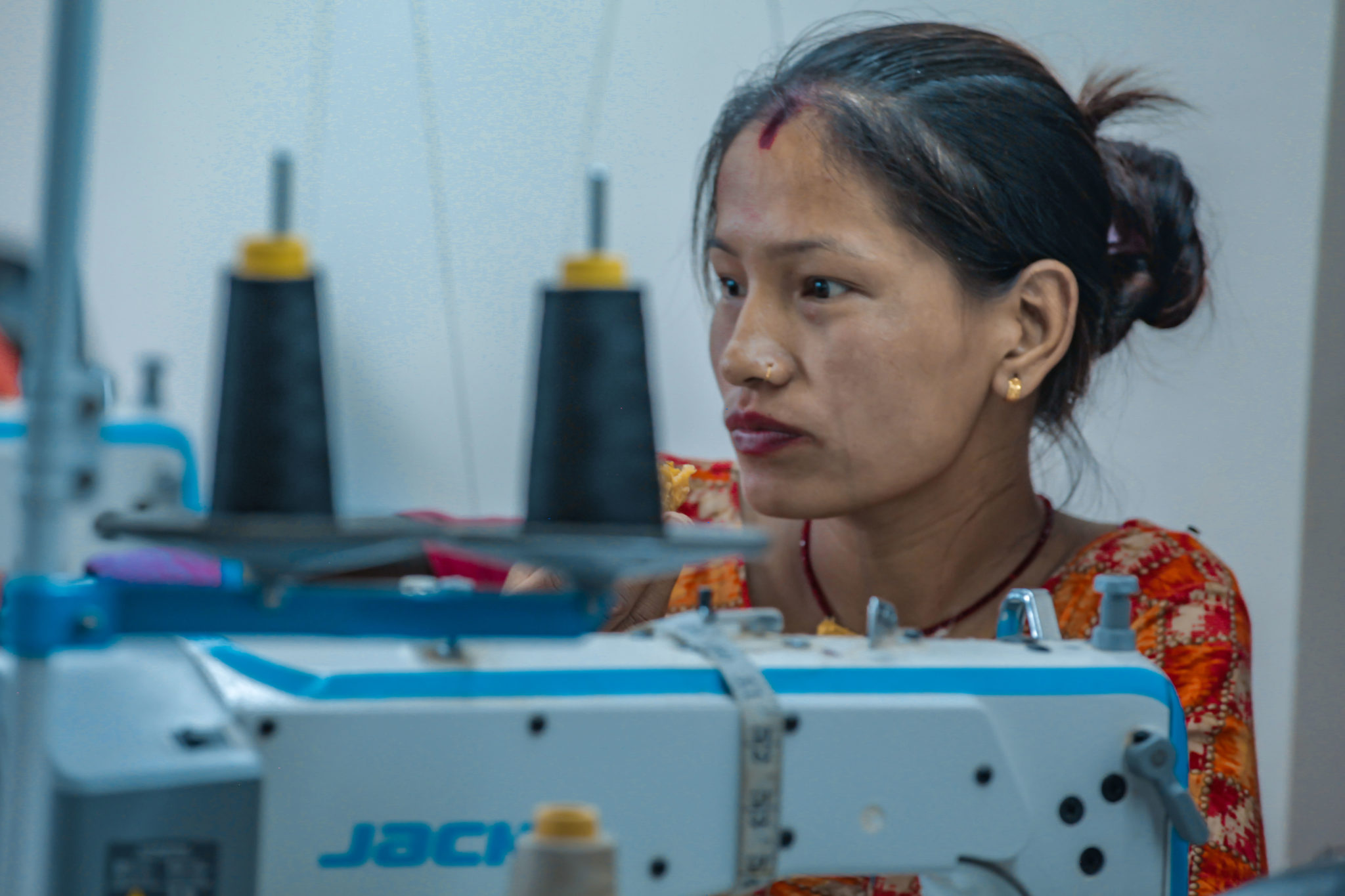My Story
Namaste, my name is Sahin Pravin and I am around 25 years old and come from the east of Nepal.
I am also involved in LWH’s sanitary product program. We manufacture a sanitary products that are reusable and environmentally friendly. I offer talks educating the women of the villages on the importance of correct use of sanitary products, tackling the subject of Chhaupadi and giving away our sanitary products, that are kindly donated by our supporters.
There is no other organisation in all of Nepal that offer the female population the support we do. LWH have now trained 380 women, all with little or no education, often with difficult past lives. Not all the women we train can stay at LWH, but they return to their villages with far more confidence, able to earn money for themselves and teach the skills we have taught them to their own daughters and other women in the village.We are starting to see a genuine ripple effect in our society. These changes and our work are not only heard about but also seen and felt within the community.
We are very aware of the environmental impact that some businesses can have and strive to make our range as environmentally friendly as possible. Many of our products are now manufactured from upcycled material. LWH know that by producing high-quality fair-trade products we can honor our customers and our workers. Here at LWH we use a 110-year-old loom that does not use electricity, we also have biogas which produces free cooking gas for all the woman at the center. We do this as we not only care about fair trade, a safe and happy work setting and empowering the women who work here but we also realize how precious and important the environment is and how much we need to save it.
It is a dream of all involved with LWH that we open more LWH centers around Nepal. Offering the opportunity of jobs and empowerment to more women, tackling the slave like conditions in the sweatshops and driving our ethos of Fairtrade products further.
While it might be hard for you to imagine Nepal is a country where only 0.1% of women own a business and unemployment averages higher than 40%. This causes economic migration and more than 15,000 people leave Nepal every year to find work in a different country.
Another huge challenge facing the female population of many countries like Nepal, including India, Pakistan & Bangladesh are the detrimental effects of the fashion and textile industry. This has dragged many women and children into a life of enforced poverty in unsafe and unregulated sweatshops and often run by unscrupulous employers, with little regards for their workers welfare. Encouraged by a western culture of buy cheap and wear once an Industry that employs a large percentage of the world’s170 million child laborers has developed. There is evidence that children are taken from their impoverished parents with the promise of a well-paid job and education but in reality, they are working under appalling conditions that amount to modern day slavery and the worst forms of child labor.
I would like to explain to people that when you buy a product then it is so important that you understand where you are buying it from, and the price people are paying so you can enjoy your cheap clothes. I fear many just see how cheap the products are but never ask “who made this”? “were they paid a fair wage”? Or “what are the real human costs of producing these products”? If you the consumer cannot be sure of the answer, then please reconsider your purchase.
By ignoring these questions then you may be a contributing factor in a life of both physical and mental pain. Imagine if the suffering that goes into every stitch of the garment was transferred to the wearer? Would you rush to purchase the latest trend or see that item on the shelf as such a bargain?
You can make a difference, if you made the decision to buy only from regulated and fair-trade companies, like LWH, then the industry would need to listen and change its practices. You would be instrumental in stopping the exploitation of millions of women and children.
You can be confident that LWH ensures that every person that works for, or with them, receives a fair wage and that their welfare is paramount.
If I was given the opportunity to say one thing to the world then what I would like to share is; “as a consumer please become conscious about where you are buying your produce from, it is only through fair-trade organizations that you can guarantee that you are helping the growers and factory workers lead better lives”.
Namaste,
Sahin Pravin
Local Women’s Handicrafts




